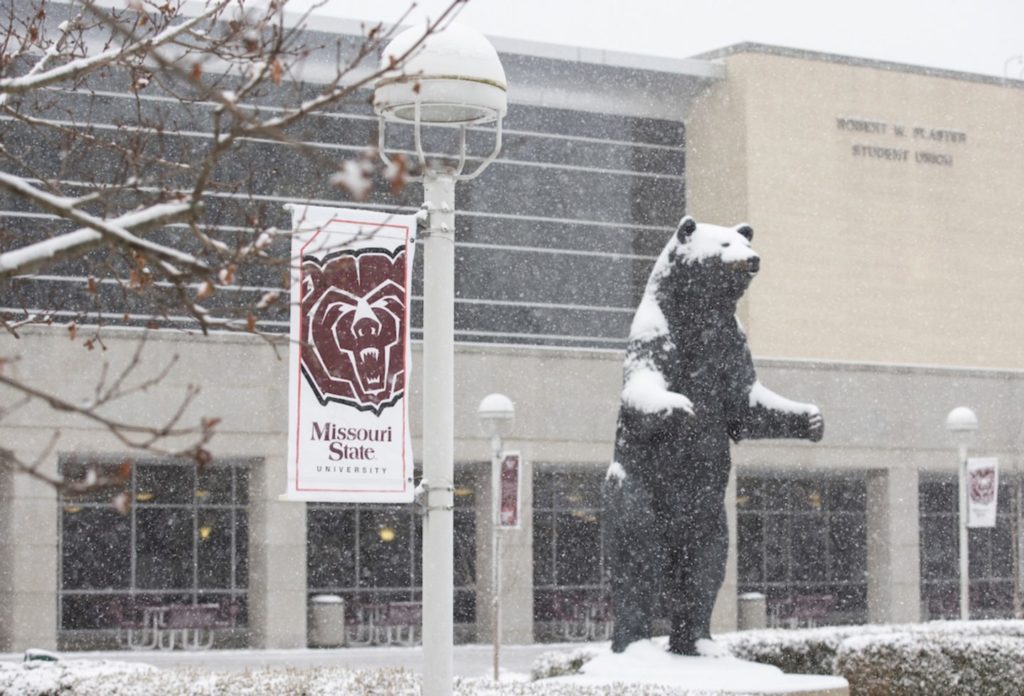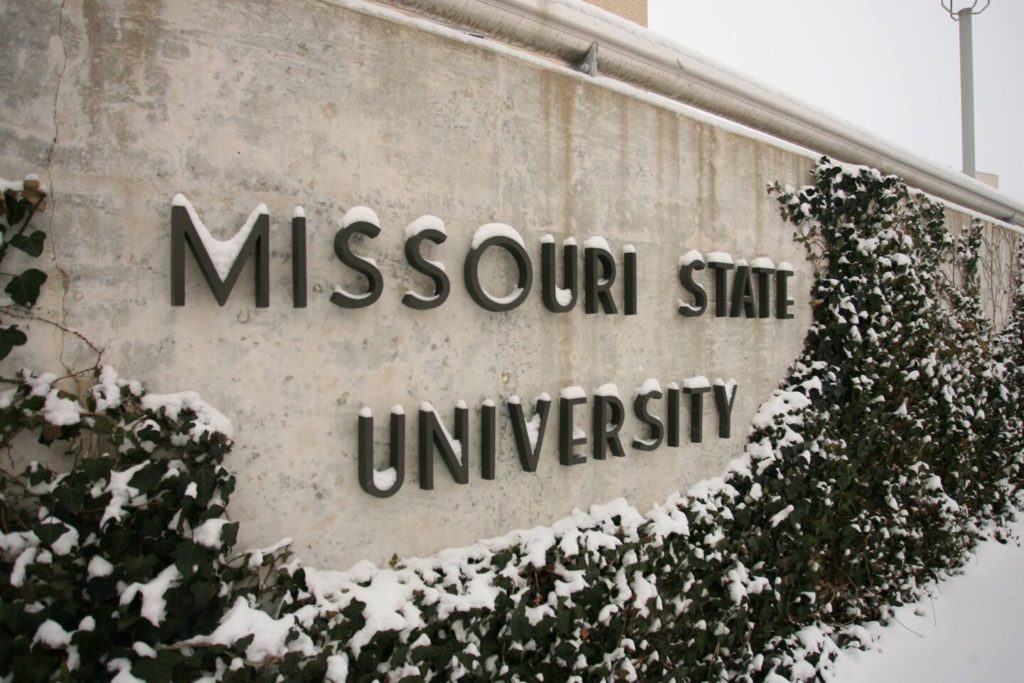No-whites-allowed business boot camp for minorities and women at Missouri State University violates state and federal laws, must be investigated by AG, watchdog argues
A business boot camp for women and minorities at Missouri State University that expressly excluded white…


Image via Facebook.
A business boot camp for women and minorities at Missouri State University that expressly excluded white males violated state and federal laws and constitutions, a national watchdog says.
The Equal Protection Project (EPP) asked in a letter to Missouri Attorney General Andrew Bailey Tuesday night that his office launch an investigation into the alleged violations.
The office is “reviewing the letter,” a spokesperson for Bailey told The Heartlander Wednesday.
MSU’s free eight-week, eight-session business training boot camp, which just concluded on Tuesday, was for 10 startups or business ideas by Black, Indigenous and People of Color (BIPOC) or women entrepreneurs. Participants not only did not pay for the program, but also were given $3,000 stipends.
White males were not eligible to apply.
“The application itself,” EPP argues in its letter, “stated that eligibility in the boot camp was restricted to ‘BIPOC or women future or current business owner[s] (recently started or in the idea phase)’ who are ‘[l]iving in southern Missouri.’
“The application also required that all applicants identify their ethnicity and gender and … that they ‘certify’ that they were ‘a BIPOC or woman.’”
The boot camp was funded in part by a $30,000 grant from U.S. Bank Foundation for MSU’s “efactory “ technology business incubator and the Missouri Small Business Development Center at MSU. The nonprofit Missouri Scholarship & Loan Foundation, formed by the Missouri Higher Education Loan Authority, also helped fund the boot camp, EPP says.
EPP’s letter says “it appears that the course is part of broader programing through MSU’s efactory and SBDC that discriminates on the basis of race. For example, those arms of MSU recently partnered with other organizations to provide multiple rounds of $5,000 grants, no-cost business training and free one-on-one assistance to business owners who identified as BIPOC.”
EPP alleges MSU’s blatant “discrimination against white males” violates the Missouri Human Rights Act’s ban on racial and gender discrimination. The organization says MSU also has violated federal civil rights protections, including Title VI of the Civil Rights Act of 1964 and Title IX of the Education Amendments of 1972, as well as Title II of the Civil Rights Act of 1964, while also violating equal protection guarantees in the Missouri and United States constitutions.
“Race and sex discrimination are wrong, regardless of which race or sex is the target,” William Jacobson, president and founder of the Equal Protection Project, told The Heartlander in a statement. “It is shocking that MSU would think it was acceptable to single out any group by race and sex for exclusion.
“Each individual has the right to equal protection of the laws. The law protects white males just as much as others. The answer to racism or sexism is not more racism or sexism.
“We urge the attorney general to force MSU to make it right, to stop such conduct in the future, and to provide remedies for those excluded for being white males.”
The Heartlander reached out for comment from MSU, which received a copy of EPP’s letter to the attorney general.
EPP acknowledges race-based classifications can in some cases be upheld under a narrow legal test called “strict scrutiny,” but “only if they are narrowly tailored measures that further compelling governmental interests.”
“MSU cannot demonstrate that limiting eligibility to the boot camp to BIPOC business owners serves any legitimate governmental purpose, let alone an extraordinary one,” the letter argues – noting that even if the boot camp furthers a compelling government interest, “it is not narrowly tailored.”
Further, EPP says, MSU must show “serious, good faith consideration of workable race-neutral alternatives” to such a discriminatory program. “There is no evidence that any such alternatives were ever contemplated here.”
EPP is a project of the Legal Insurrection Foundation, a nonprofit safeguarding the treatment of people “without regard to race or ethnicity.” The EPP website argues “there is no ‘good’ form of racism.”
Some may wonder what’s the harm to white males or anyone else from the MSU boot camp.
“Well, it’s a state institution using its resources and its facilities to discriminate against white males,” Jacobson told The Heartlander in an interview Wednesday. “That’s unlawful in our view.
“Whenever you have an equal protection problem, where people are not afforded equal protection of the laws, the constitutional harm is the barrier to access. It does not matter (legally) whether someone actually applied for this program and was rejected, because people wouldn’t apply to a program which says you’re not eligible. So, the harm is you have a major state university embracing and advertising discrimination on the basis of race and sex, and limited to one race and one one sex: white males.
“It’s very targeted, and we think that’s extremely pernicious. We think it’s something that the state needs to address.”
What needs to happen?
“Missouri State University needs to make (such boot camps) available, generally speaking, to people who were excluded,” Jacobson says. “And if that means putting on another boot camp or another three boot camps that would remedy the situation, that would probably be best. Because part of the problem is, it’s going to be hard to identify who didn’t apply to this because they were ineligible.
“The proper remedy is to compel them to offer this program again, but open it up to anybody who wants to attend.”
Jacobson said the mistaken belief that an institution must discriminate to make up for historic discrimination is rife on college campuses, thanks in large part to the Ibram X. Kendi book How to Be an Antiracist.
“He advocates current discrimination to remedy past discrimination. That is simply not what the law is. The law has always been that each person is entitled to be treated as an individual, not as a proxy for a group, and you cannot discriminate against individuals based on past history.
“This is a reflection of a problem which has affected higher education and secondary education – which is the concept that you should discriminate now to make up for past discrimination. That is the philosophy that, on campuses, is often referred to as either diversity, equity and inclusion, or anti-racism.
“Missouri State needs to reject the ideology that justifies current racial discrimination as some sort of remedy for past racial discrimination.”



